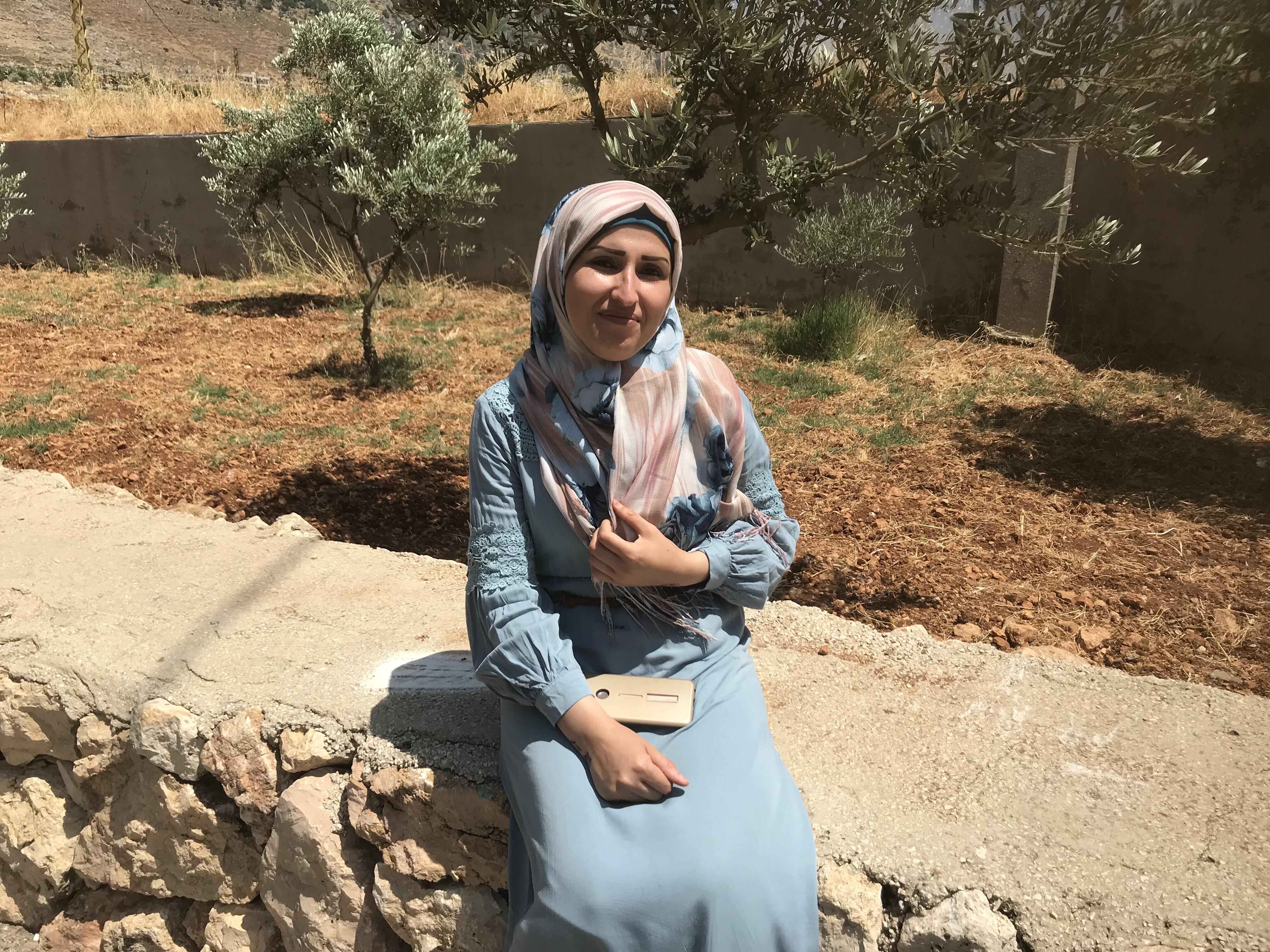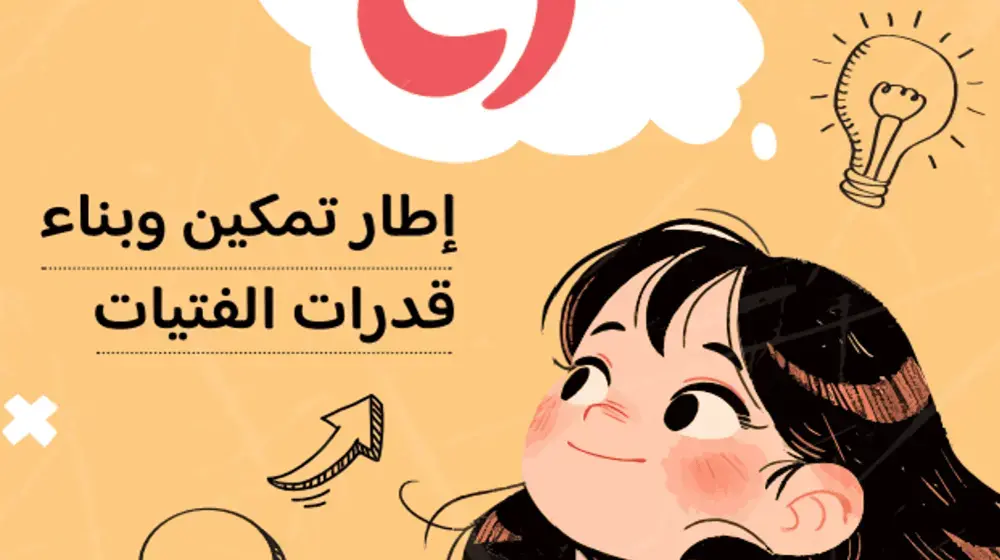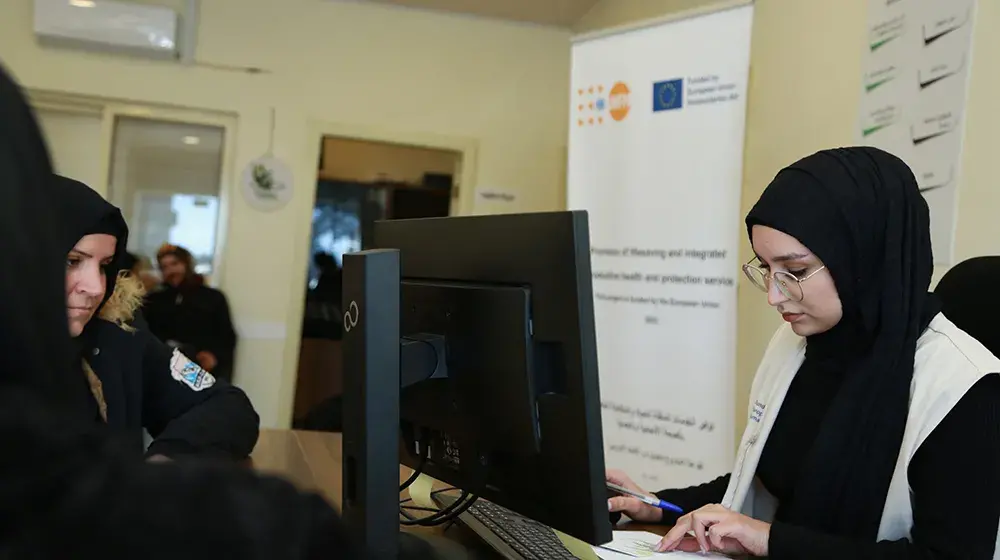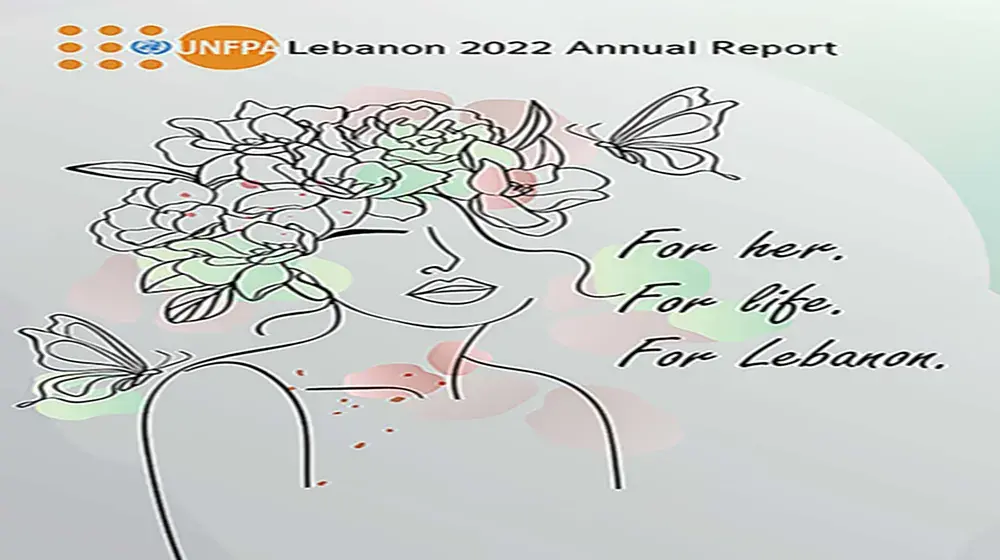Sahar’s story is one of courage and resilience in the face of adversity. The 33-year-old, originally from Aleppo in Syria, left at the height of the conflict in 2011 and fled to Lebanon with her family. She and her husband, whom she married when she was 15, settled in the Bekaa in East Lebanon, and with four mouths to feed, they had to scramble to make ends meet.
“That was the tradition, to marry your cousin at a young age and leave school,” Sahar says. “I had many complications in childbirth, a lot of bleeding.”
Child marriage threatens girls’ lives and health, and it limits their future prospects. Girls pressed into child marriage often become pregnant while still adolescents, increasing the risk of complications in pregnancy or childbirth. These complications are the leading cause of death among older adolescent girls.
Sahar and I are sitting in a classroom in Mashghara in West Bekaa, in a center run by UNFPA’s partner, Amel Association International. UNFPA and Amel work on outreach and awareness activities on gender-based violence, early marriage and family planning. They train men, women and adolescent peer educators so they can become agents of change in their communities.
“After my third child, I couldn’t take it anymore. I wanted to continue my education,” Sahar says. “My husband wasn’t 100 per cent supportive, and neither were our parents – they wanted us to have more children, but I applied to a college and took contraceptive pills.”
Because of parental pressure, however, Sahar and her husband decided she would stop birth control. She became pregnant again and had to stop her studies. Once more, Sahar decided she had had enough. She stood up to her husband and parents and enrolled in college again.
“I wanted to pass the high school exams; I want to go to university. I want to do it, I’m not scared,” Sahar says.
Not long after, Sahar’s husband injured himself working in construction, and has been unable to work since. This has put the family in a crisis, and Sahar has had to send her oldest children to work. She had been working in a small shoe store herself, but her salary alone wasn’t enough. She then had an idea.
“I had a car, so I thought I could start driving my friends around to their appointments for a small fee,” Sahar said, beaming. “I had a good reputation in the area, and others started referring me.”
She had also started working as a peer educator with Amel, raising awareness on the dangers of early marriage, and using her personal experience as a testimony.
“When I first sat for the training, I started to cry when the theme of early marriage came up,” she said. “I became the greatest advocate among my peers. Eventually, when I became an educator myself, many underage girls who attended my sessions ended their engagements.”
While her children have had to help out financially by going to work, Sahar decided to keep all of them in school, regardless of the hurdles. Her daughter Safaa is sixteen, and is also training to become a peer educator. Sahar does not want her to suffer the same fate by being married early.
“My husband wanted her to get married to her cousin, but I refused,” she explained. “I want my daughter to go to university, and I want her to meet someone there. I want her to marry someone she loves.”





